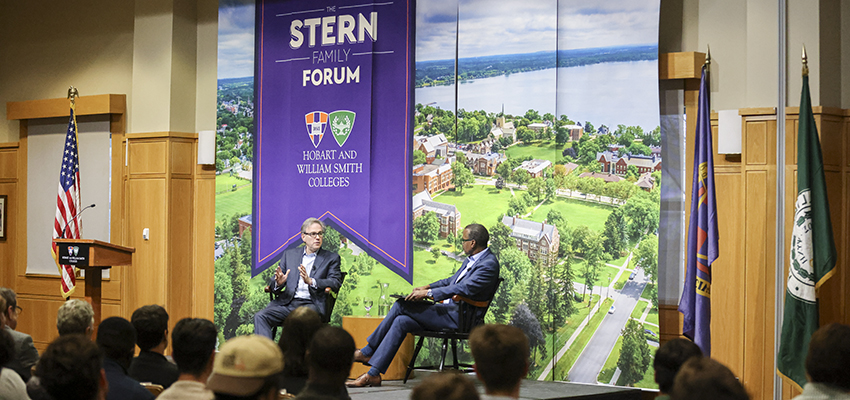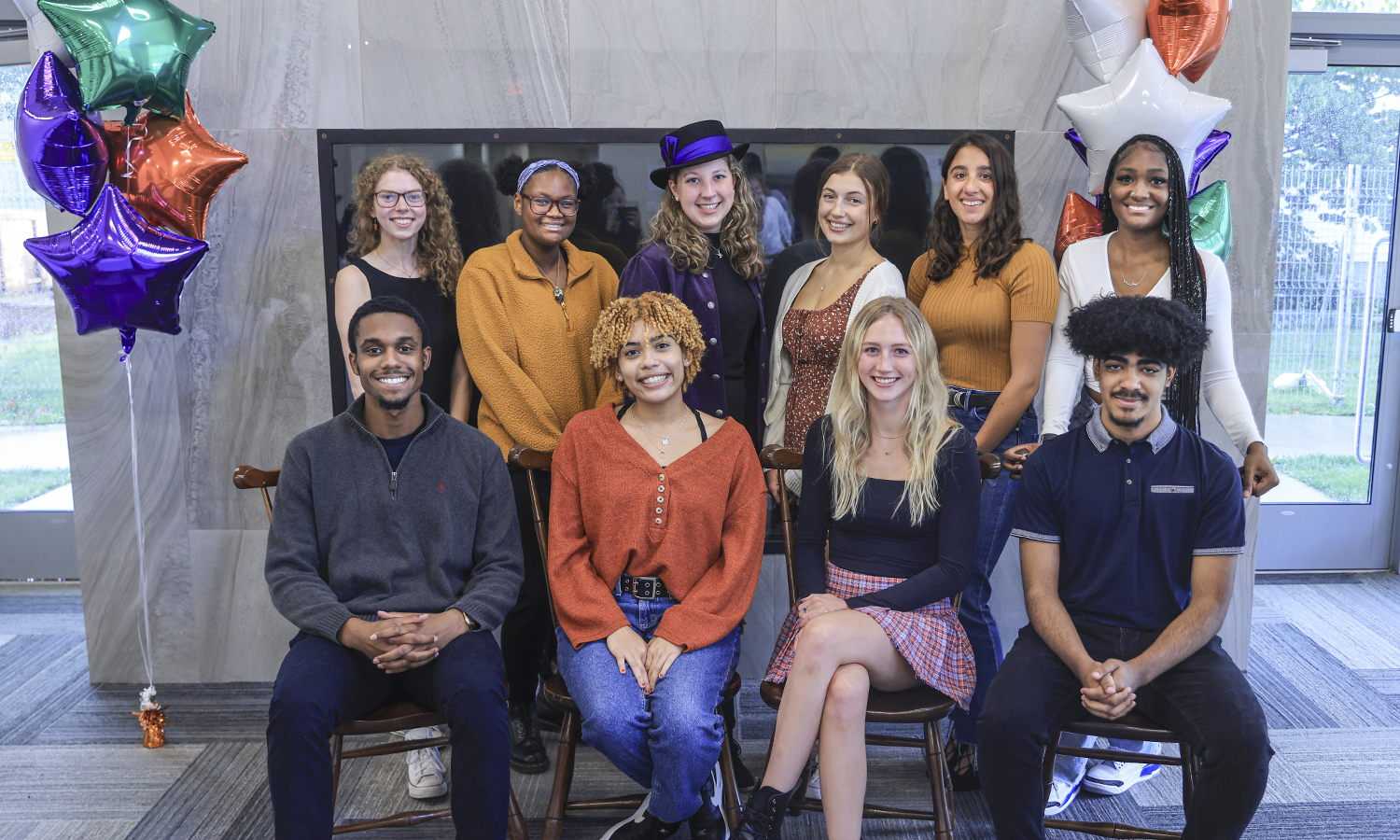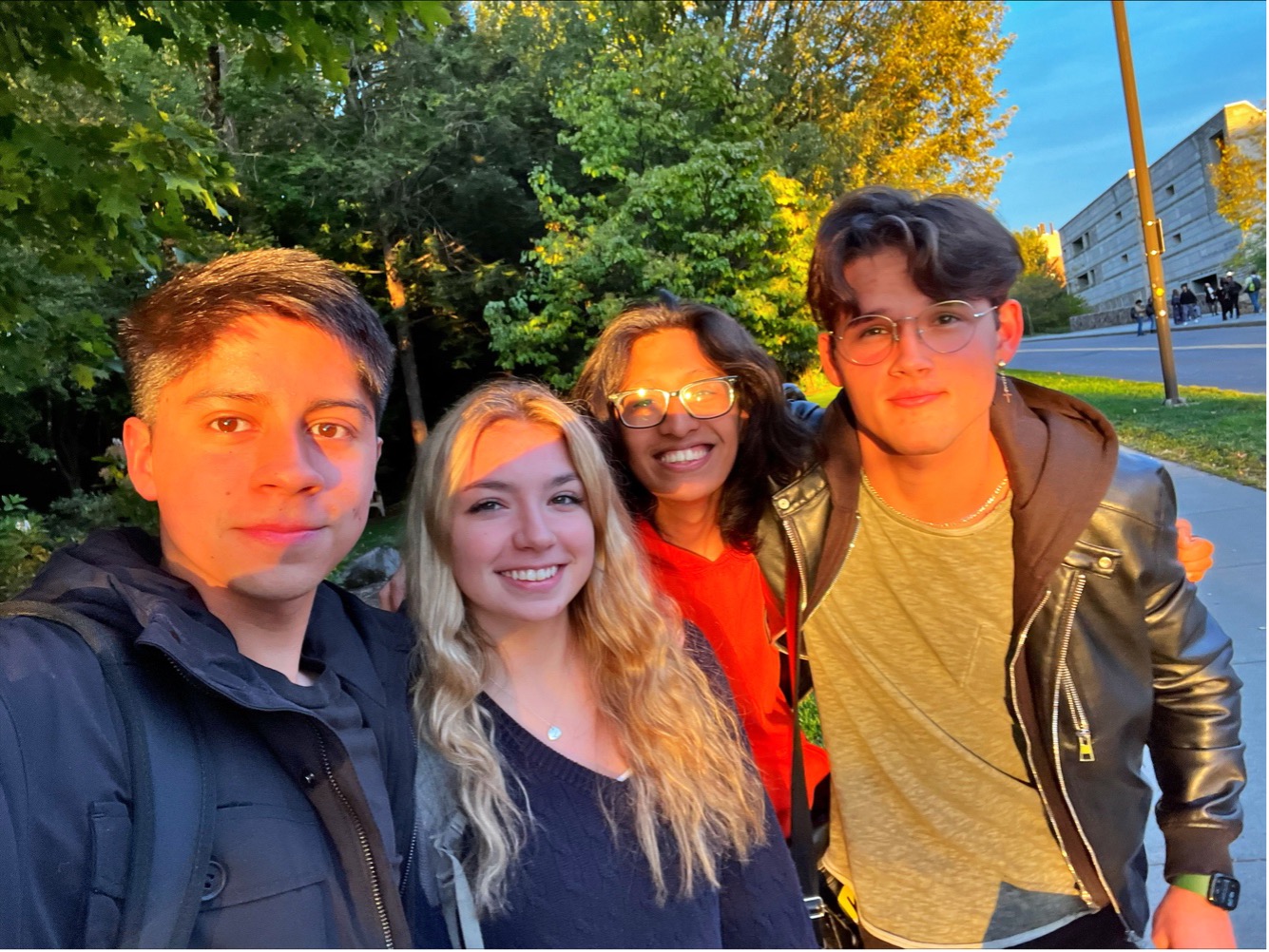
HWS News
29 April 2022 • Alums Conservatism Today: Bret Stephens kicks off the Stern Family Forum
Pulitzer Prize-winning columnist Bret Stephens reflected on intellectual humility, the benefits of a healthy conservative politics and the perils of ideological orthodoxy.
“Thoughtful introspection” was the running theme of Pulitzer Prize-winning New York Times Opinion Columnist Bret Stephens’ dialogue during the inaugural event of the Stern Family Forum series.
“We can keep our minds open and still think of ourselves as conservatives or liberals without being doctrinal and ideological and following every last line of what you’re supposed to believe if you are put into an ideological box,” said Stephens, who joined the HWS community for a discussion — “What Is Conservatism Today? What Should It Be? Why Do We Need It?” — moderated by Emmy Award-winning 60 Minutes Correspondent and HWS Trustee Bill Whitaker ’73, L.H.D.’97.
The Stern Family Forum, generously funded by Honorary Trustee Herbert J. Stern ’58, P’03, LL.D. ’74 and Trustee Samuel A. Stern ’03, was recently created to support annual events with notable guests who bring nuance to difficult, sometimes controversial subjects.
President Joyce P. Jacobsen introduced the forum by noting what she called “an erosion of our ability as a society to have difficult conversations on topics about which we might disagree.” Praising the success of the HWS Debate team, she emphasized that HWS is “in the business of nurturing people…to consider the world from multiple perspectives, to see different viewpoints and not dismiss the ideas of people holding them because they don’t align with ours.”
Judge Stern, in his introduction of Stephens, pointed to the columnist’s collaborations with fellow Times writer Gail Collins, in which “the debate and the dialogue is always civil; always advances issues, not personalities; always instructive…and [most significantly, seeks] common ground…to educate and enlighten the reader.”
Engaging with questions from Whitaker, Stephens parsed the differences between conservatism and Trumpism, explained why he left the Republican party and described the importance of introspection to successful societies.
“To me, the task of a thoughtful conservative is to protect the liberal idea…of political systems that put the individual and his or her rights, and sometimes responsibilities, at the center of your political program,” he said. “A classic conservative has ideas to offer which are valuable for all of us.… The world and this country in particular needs a healthy conservatism, [but] there’s just not a political platform for it at this moment.”
For thoughtful conservatives, empathy and “intellectual humility has to be at the core of the way in which you think about the world,” Stephens said. A key component of that, he added, is an openness toward introspection and self-criticism, “to hold conversations about what ails your community with the constructive purpose of making it better.”
As he responded to audience questions, Stephens proposed that the U.S. should strive for a society of “thoughtful — a little more thoughtful, a little more decent — people who are, as Dr. King said, trying to bend the moral arc of the universe toward justice.”
“The most important thing I think any of us can do,” he said, “is to cultivate the habits of a free mind.… What I think your teachers really want is for you to find that point in your soul and in your mind that says no to a particular orthodoxy. That’s what launches, at the deepest level, your real adulthood, your real independence, your real freedom of spirit and of mind.”
Prior to joining the Times in 2017, Stephens spent many years at The Wall Street Journal, where he won the 2013 Pulitzer Prize for commentary. He also served as editor-in-chief of The Jerusalem Post, a position he assumed at age 28. He is a leading member of the “NeverTrump” wing of the conservative movement and has regularly courted controversy from both the left and right for his views on foreign policy, the Israeli-Palestinian conflict, climate change, cancel culture, gun control and other subjects. Stephens grew up in Mexico City, has degrees from The University of Chicago and the London School of Economics, and is co-founder, with chess champion Garry Kasparov, of the Renew Democracy Initiative. He is currently at work on a book called How To Save The Free World and is also the editor-in-chief of SAPIR, a new Jewish quarterly.



